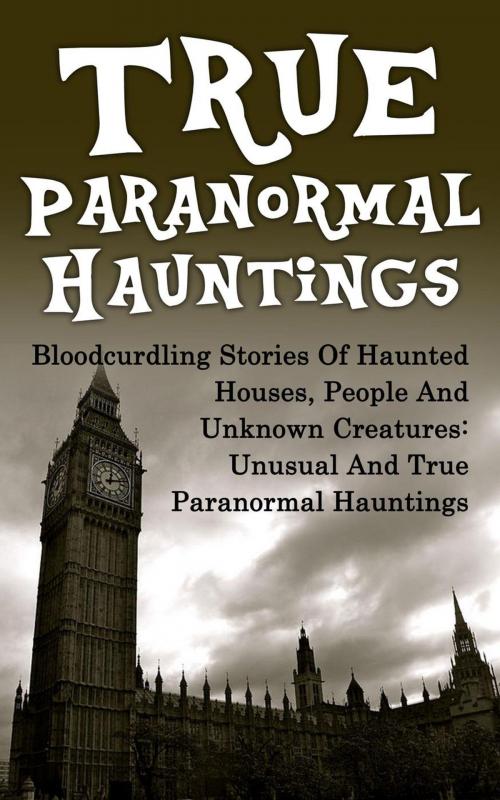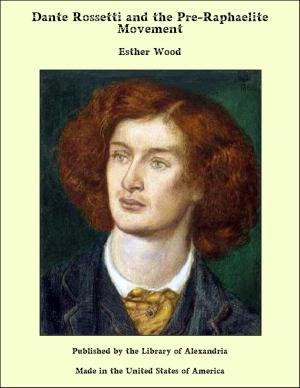True Paranormal Hauntings: Bloodcurdling Stories of Haunted Houses, People and Unknown Creatures: Unusual and True Paranormal Hauntings
True Paranormal Hauntings, #6
Nonfiction, Religion & Spirituality, Occult, Occultism, Philosophy, Mind & Body, New Age| Author: | Joseph A. Mudder | ISBN: | 9781386790358 |
| Publisher: | Joseph A. Mudder | Publication: | April 12, 2018 |
| Imprint: | Language: | English |
| Author: | Joseph A. Mudder |
| ISBN: | 9781386790358 |
| Publisher: | Joseph A. Mudder |
| Publication: | April 12, 2018 |
| Imprint: | |
| Language: | English |
As humans we have a fascination with the unknown. Our minds naturally drift towards finding out what we do not yet know. In the history of human civilization this desire to know the unknown has molded the thrust of progress. Our desire to explore the boundaries of our knowledge and experience have led to us setting foot on the moon, and on trying to figure out how the universe itself works, and how it all came about.
However, the desire to understand what has not been understood, to experience what has not been experienced and learn what is unknown, is most truly realized in us in our deep fascination with the paranormal. The word is a combination of the root words ‘para’ and ‘normal’, with the understanding that anything that is ‘above’, or beyond our conceptions of normality, is paranormal.
The word supernatural has also evolved from a similar context, coming from Latin and meaning ‘above nature’. Paranormal is different from a hypothesis, which, while also beyond our understanding are nevertheless based on scientific observation. Paranormal, on the other hand, refers to a more instinctive and imaginative understanding of what cannot be explained.
This book aims to do something similar to the anecdotal approach of analyzing the paranormal. In keeping with the anecdotal approach, I do not intend to question the veracity of the following events mentioned in this book. Such a line of questioning ignores the purpose of the paranormal, its effects as well as the organic way in which the story about the supernatural grows to become a legend.
The paranormal is often derided as untrue or full of falsities, but in my opinion it is actually a keynote to human progress. As humans we have a fascination with the supernatural, which draws us to our primal instincts to keep surviving and progressing as a race.
As humans we have a fascination with the unknown. Our minds naturally drift towards finding out what we do not yet know. In the history of human civilization this desire to know the unknown has molded the thrust of progress. Our desire to explore the boundaries of our knowledge and experience have led to us setting foot on the moon, and on trying to figure out how the universe itself works, and how it all came about.
However, the desire to understand what has not been understood, to experience what has not been experienced and learn what is unknown, is most truly realized in us in our deep fascination with the paranormal. The word is a combination of the root words ‘para’ and ‘normal’, with the understanding that anything that is ‘above’, or beyond our conceptions of normality, is paranormal.
The word supernatural has also evolved from a similar context, coming from Latin and meaning ‘above nature’. Paranormal is different from a hypothesis, which, while also beyond our understanding are nevertheless based on scientific observation. Paranormal, on the other hand, refers to a more instinctive and imaginative understanding of what cannot be explained.
This book aims to do something similar to the anecdotal approach of analyzing the paranormal. In keeping with the anecdotal approach, I do not intend to question the veracity of the following events mentioned in this book. Such a line of questioning ignores the purpose of the paranormal, its effects as well as the organic way in which the story about the supernatural grows to become a legend.
The paranormal is often derided as untrue or full of falsities, but in my opinion it is actually a keynote to human progress. As humans we have a fascination with the supernatural, which draws us to our primal instincts to keep surviving and progressing as a race.















